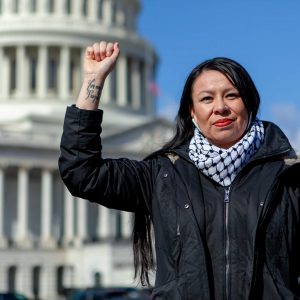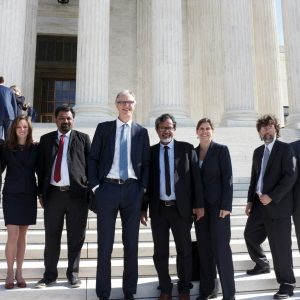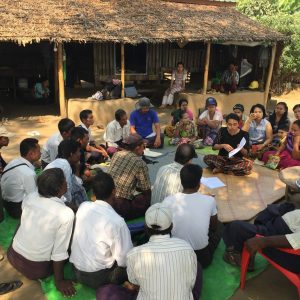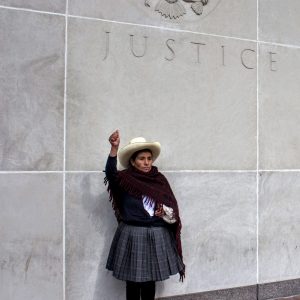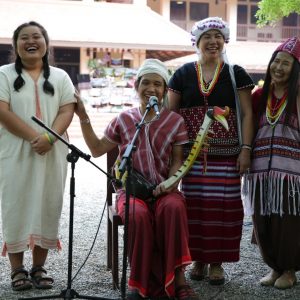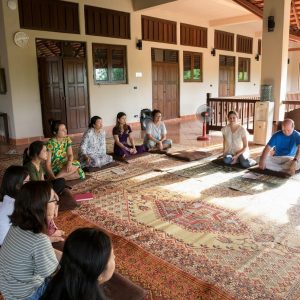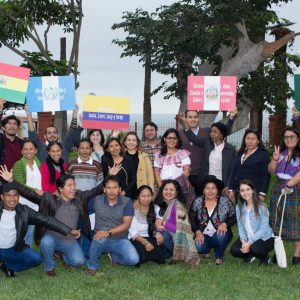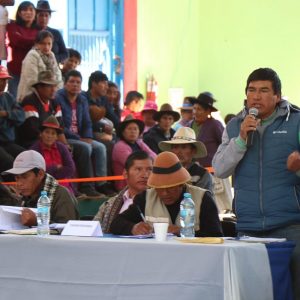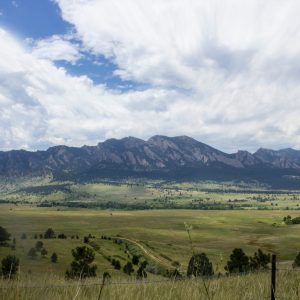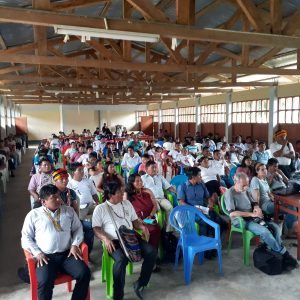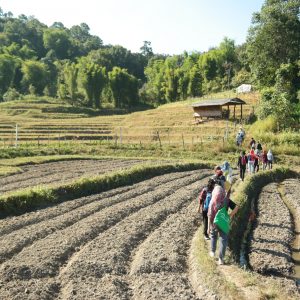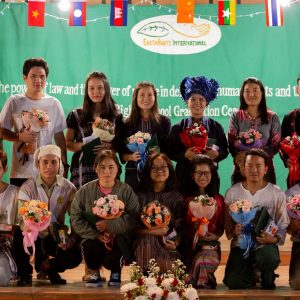- Krystal Two Bulls, an Oglala Lakota and Northern Cheyenne water protector, prevailed as the lawsuit that Energy Transfer Partners filed against her was dismissed by a federal judge. The corporation infamous for its involvement in the Dakota Access Pipeline tried to bully Krystal into silence for her activism around the pipeline, suing her as part of a sprawling racketeering lawsuit. EarthRights lawyers successfully defended her in federal court and got the case dismissed.
- In February, EarthRights won our first Supreme Court victory in our case Jam v. International Finance Corporation (IFC). In a historic 7-1 decision, the U.S. Supreme Court decided that international organizations like the World Bank Group are not absolutely protected from lawsuits in U.S. courts, setting an important precedent to hold major international financial institutions accountable for their investments.
- EarthRights staff lead a workshop in Thilawa, Myanmar for communities affected by the Special Economic Zone. Here, our colleague Than Than Aye teaches community members about community land rites, public participation, and other policy-related procedures.
- In April, we convened a two-day workshop to support inclusive and sustainable development that respects the rights of local communities. Fifty participants representing partner organizations from Salaween, Hongsa, Nan Province and Nhong Tao communities came together for a lively exchange that included panel discussions on sustainable development.
- We convened our EarthRights School class of 2019, marking the school’s 20th year. Sixteen students from across Southeast Asia came together to live and learn at EarthRights’ Mitharsuu Center for Leadership and Justice.
- In our fourth edition of the Latin American Indigenous Legal Defense Seminar we had the pleasure of getting to know and grow alongside indigenous leaders and lawyers from Peru, Colombia, Ecuador, México, Uruguay, Guatemala and Bolivia. We spent 10 days learning more about regional judicial law, international courtrooms, law and organizations, communications, and more, all while sharing stories and building a strong regional network of earth rights defenders.
- As part of our fight for justice and accountability, we investigated how Peruvian laws let corporations hire police forces to intimidate and harass earth rights defenders. Our investigation revealed that extractive industries in Peru hire police to protect corporation interests over those of local communities, particularly in regions where people have opposed projects like proposed mines. This practice is unconstitutional, undermines community rights, and stands in stark opposition to international standards for upholding human rights.
- EarthRights’ climate accountability case, Boulder v Suncor, made legal history when it became the first of its kind to return to state court. EarthRights International, the Niskanen Center, and Denver attorney Kevin Hannon are representing Boulder County, San Miguel County, and the City of Boulder in a lawsuit against Exxon Mobil and Suncor for their roles in the climate crisis.
- We continued to work hand-in-hand with the Wampis Nation, an indigenous community from Peru and Ecuador. In the depths of the Amazon rainforest, we participated in their Annual Summit. There we shared updates on the cases we are working on with them and convened women-led workshops that explored the importance of their role in their communities.
- Students from the EarthRights School took a field trip to Baan Nong Tao in northern Thailand. They met local communities and learned how indigenous people use their beliefs and practices to protect their lands and forests.
- After completing a seven-month course that started in mid-May, 16 students graduated from the EarthRights School. The class was comprised of students from Cambodia, China, Laos, Myanmar, Thailand and Vietnam.
More Blog Posts
No items found



